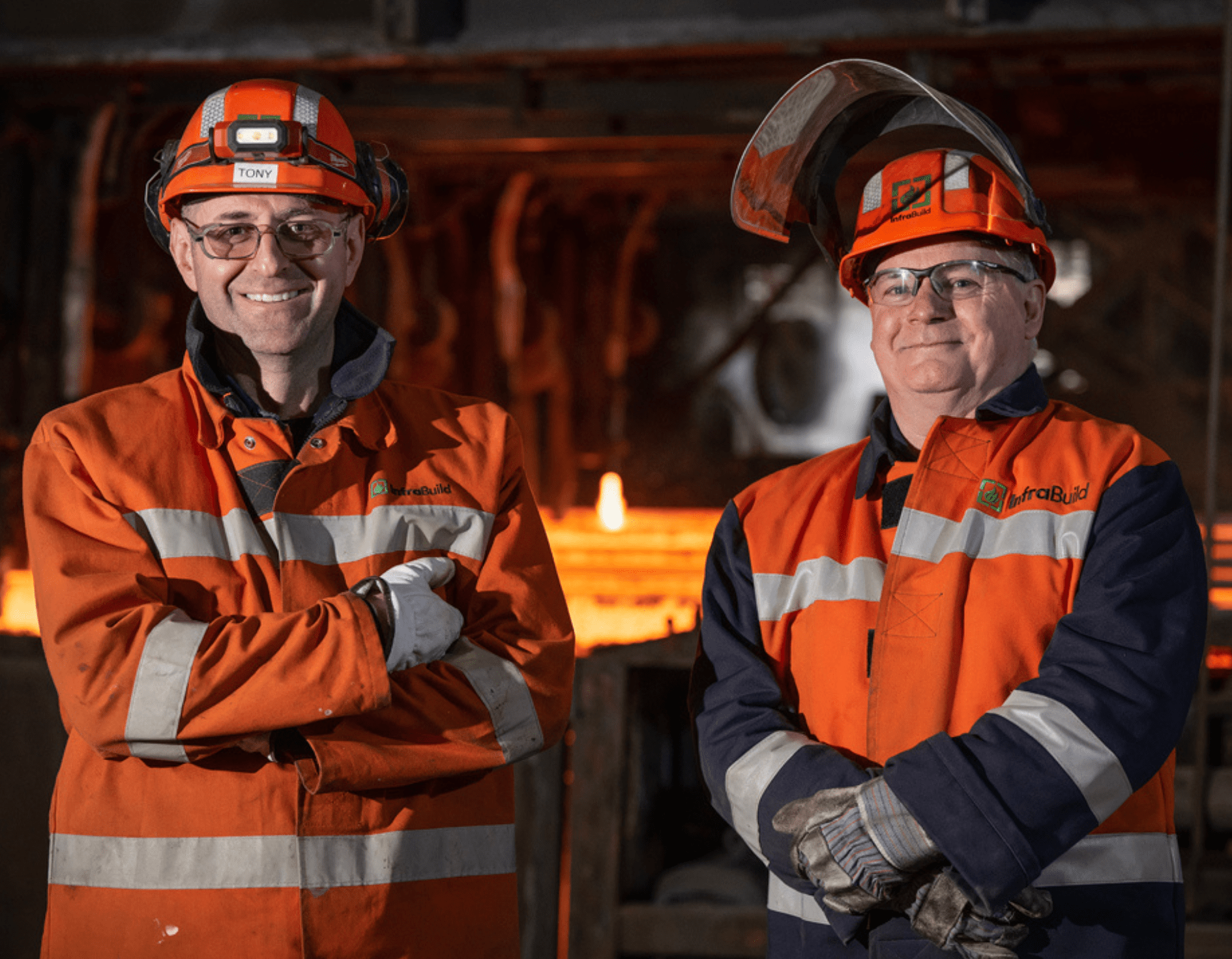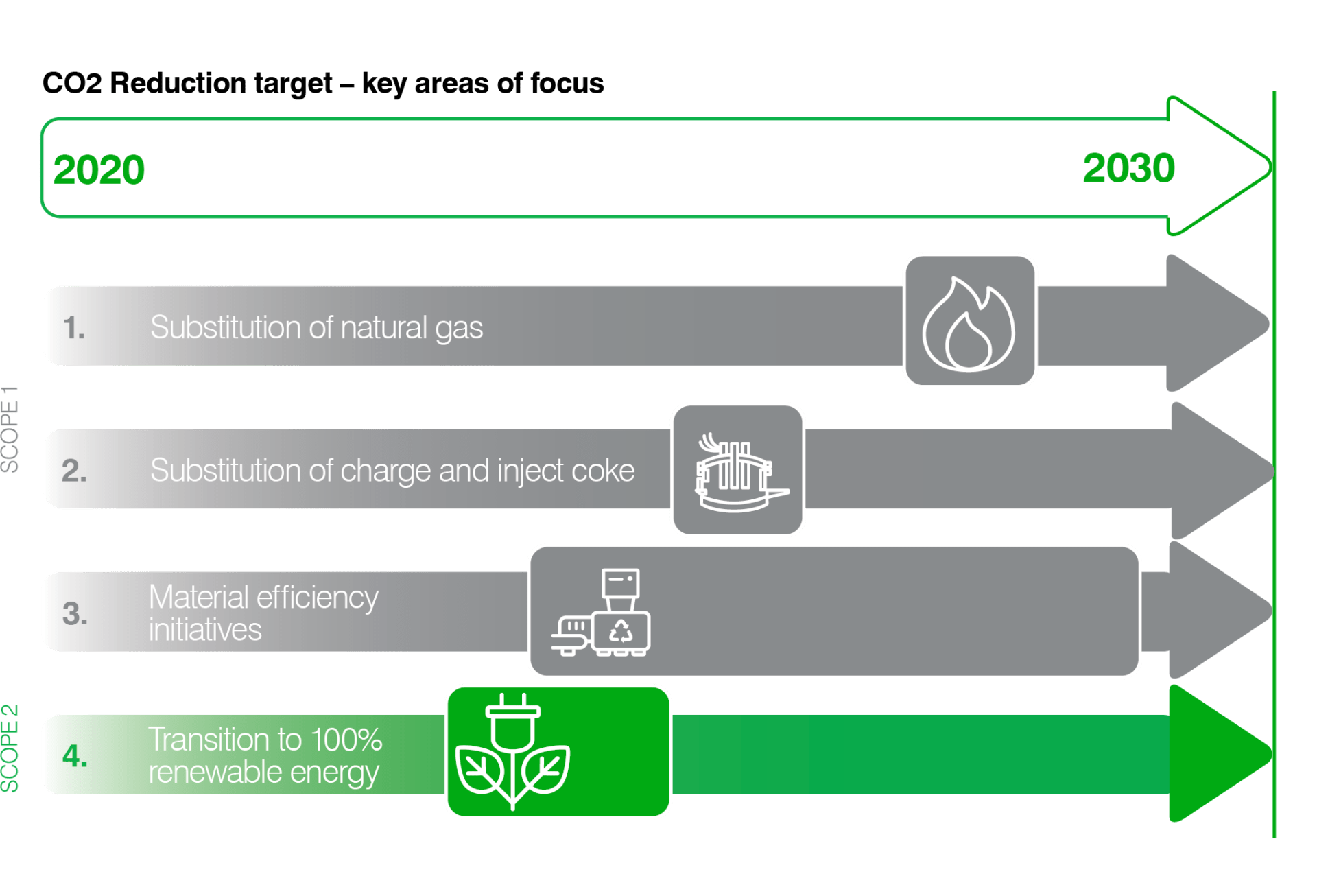
InfraBuild recognises that climate change is a global emergency and is an issue that requires international cooperation and coordinated solutions at all levels.
As a steel maker and construction solutions provider, we have a key role to play. The built environment which InfraBuild primarily services, accounts for approximately 40% of global greenhouse gas emissions (World Green Building Council 2019). To limit global warming to 1.5°C it is essential that buildings and infrastructure decarbonise rapidly. Achieving this goal will require global improvements in construction standards and operational performance. Simply complying with existing building standards will not be sufficient.
Governments, designers and building owners are beginning to identify suitable low energy building/ infrastructure specifications to support rapid decarbonisation. Governments are revising regulations to align with the required rate of emissions reduction and building owners are beginning to seek net zero developments.
InfraBuild needs to be able to respond to these changing market conditions – ensuring that its market offer delivers lower embodied carbon construction solutions, so as to underpin long term sustainable profitability and ensure its ongoing relevance to the Australian construction market.

Key to our response is a commitment to become a low emission, net zero (carbon neutral) steel manufacturing business by 2030.
InfraBuild is well placed to achieve its CN30 Objective because of the existing EAF based steelmaking position and the ability to eliminate 76% of its combined Scope 1 and 2 emissions by transitioning to renewable electricity. InfraBuild is not limited or constrained to achieving a low emission status by technological initiatives that are not yet proven. That is not to say that the task is easy – the immediate challenge will be the availability at scale or at the right cost point for some of the abatement solutions for Scope 1 emissions. The Decarbonisation Strategy initially focusses on abating InfraBuild’s Scope 1 & Scope 2 emissions.

Like many organisations adopting a ‘net zero approach’, the strategy at this point does not set a clear path to abate InfraBuild’s Scope 3 emissions. We have commenced this process however and will continue to work closely with our key suppliers to facilitate abatement opportunities. Technological break throughs and their commercial viability will be critical for many of our suppliers to make a significant step change in assisting us to reduce our Scope 3 emissions.
Becoming a low emission, net zero business means InfraBuild needs to reduce its Scope 1 and 2 emissions as much as commercially, technologically and economically possible by moving its energy sourcing to a zero emission supply position.
This needs to be the main focus, which, in turn, will lower both the reported Scope 1 and Scope 2 emissions as well as reducing the GWP (Global Warming Potential) numbers reported in our EPDs, which represents the embodied carbon intensity of the f inished products we produce.
Genuine emission reductions, coupled with innovative product and solution development will position InfraBuld for success via the delivery of low embodied carbon construction solutions – reducing our Customers Scope 3 emissions.
Please contact us for any feedback or media enquiries about this content.
Subscribe to the
InfraBuild newsletter
Receive regular updates on news, case studies as well as the latest products and services.
